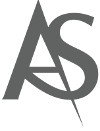Before the procedure
The first step before the procedure is to consult an appropriate specialist doctor. In order to reserve the appointment, please contact the reception desk of the Clinic, tel. 0048 22 622 08 08, 0048 22 404 51 35, Monday to Friday from 9 a. m. to 8 p. m. You can also sign up for the consultation by e-mail: info@drsankowski.com
If the Patient is qualified for the procedure, we will set a date.
It is important if you suffer from chronic illnesses to take your medical records and the results of laboratory tests with you for consultation.
The patient will be referred to the examinations necessary for the procedure at the consultation of the attending physician.
Usually in case of general anaesthesia, the following test are necessary: blood type, morphology with blood smear , ESR, urine test, coagulogram (APTT, Prothrombin Ratio, INR), fasting blood glucose level, electrolites (K, Na), urea, creatinine, Antigen HBs, HIV, HCV, ECG with description, chest radiograph, breast ultrasound.
Please provide the results of the tests at least two weeks before the scheduled date of treatment. Test results are valid for 3 months.
The surgical procedure must not take place in the case of:
- presence of inflammatory outbreaks in the body or such diseases as e. g. unbalanced arterial hypertension, heart disease, diabetes, herpesis
- taking medication reducing blood clotting (e. g. aspirin), contraceptive pills. Medicines should be discontinued 2 weeks before the procedure.
- during pregnancy or before and during menstruation.
You should also refrain from smoking two weeks before the procedure.
On the day of surgery, the patient should report to Clinic fasting, which means that he/she must remain for 6 hours without food and drink in relation to the scheduled time of the procedure. Only medicines that are taken permanently can be taken with a small amount of water.
You should apply for the treatment by taking the original test results, toiletries and any clothes for changing after the procedure. Patients should report without makeup. Please also leave your jewellery at home.
You can pay for the procedure in cash or by bank transfer. The fee must be paid on the day of the procedure at the latest. In the case of payment by bank transfer, please take the confirmation of making the transfer with you. There is no possibility to pay by credit card.
The price agreed with the Patient includes the surgery and the necessary dressings and follow-up visits.
The procedure should be reported at the indicated time, placed on an individual referral to the examinations. Usually it is between 15.30 and 16.00. Several operations can take place one day. The sequence of procedures and the approximate starting time is determined after a conversation and examination of all patients by the surgeon and anaesthesiologist. All patients must give their consent to the procedure by getting acquainted with and signing the necessary documentation, which they receive during the first consultation. Photos are taken before the surgery.
Patients who have had surgery under local anaesthesia may leave the clinic about an hour after the surgery. Patients who had their procedures conducted under general anaesthesia remain in the Clinic until the next day until about 14.00 or for an additional 24 hours. Patients in the Clinic are under constant medical and nursing care at all times.
After 7 days from the date of the treatment, the patient is asked to come for the inspection and the sutures removal as well as to change dressings, if necessary.
After the stitching is removed, it is advisable to oil the scars and a gentle massage with vitamin E in liquid or to use the olive oil for babies. After 3-4 weeks after the procedure, silicone ointment can be used, e. g. Veraderm.
Please note that following the surgery, you can start sunbathing after 3 months of time. Protect the scars from the sun for at least a year, so that they do not become pigmented.
You can usually return to physical activity after 3 months without restrictions. Everything depends on the intensity of the effort and the type of procedure performed.
Information for patients living abroad: It is advisable to stay in Poland for a few days until the stitches are removed.
